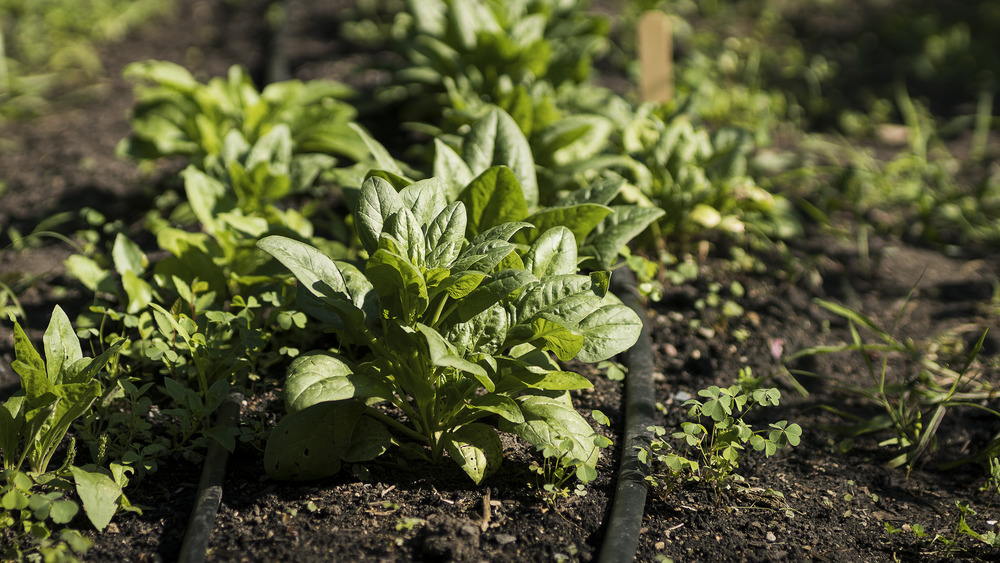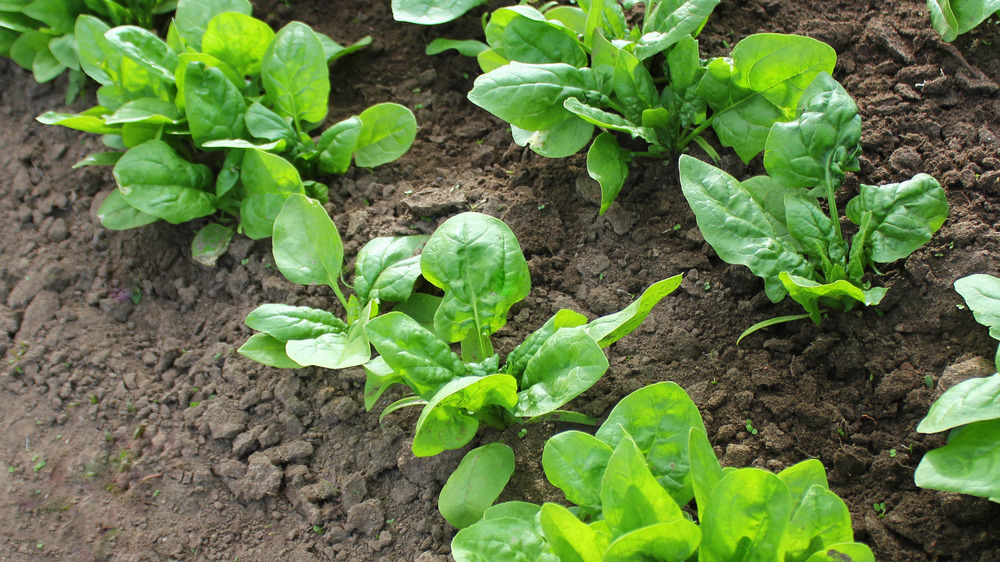Scientists Just Taught Spinach To Send Emails. Here's Why
Even if you're a person that has to be forced to eat their vegetables, you'd have to agree that nutritionists didn't miss their mark when they declared spinach to be a superfood. Whether you have it cooked or in a salad, spinach is rich in minerals like iron, as well as vitamin A, C, and K (via Medical News Today). And if plant scientists have their way, spinach will be packing more than nutrients. They could also become our advance team in the fight against climate change.
Scientists at the Massachusetts Institute of Technology (who have the ability to look at a vegetable to identify more than its potential to taste better creamed or as part of a delectable artichoke dip) have discovered that living spinach plants can also be packed with a little something extra: sensors which can monitor groundwater conditions, and which can then send a signal which alerts scientists via email about the presence of certain chemicals in the groundwater (via Today).
Lead researcher Michael Strano's reason for trusting spinach is rooted in the way this vegetable deals with groundwater. "Plants are very good analytical chemists. They have an extensive root network in the soil, are constantly sampling groundwater, and have a way to self-power the transport of that water up into the leaves," he says (via Euronews).
Spinach can be enlisted in the fight against climate change
The initial experiments involved getting spinach to call out the presence of nitroaromatics, or compounds typical of weapons like landmines, and which might be present in the groundwater. But Strano and his fellow researchers say signs point to the fact that more sensitive plants like spinach could also become part of an advance party that helps us tackle bigger problems like pollution and climate change.
This all comes down to the way nature has engineered plants to become more attuned to their environment than we humans could ever be. "They know that there is going to be a drought long before we do. They can detect small changes in the properties of soil and water potential. If we tap into those chemical signaling pathways, there is a wealth of information to access," Strano says.
And while none of us are questioning the importance of this discovery, we can trust social media to deliver on a bit of fun. "Scientists can teach spinach to send emails but they can't teach me to read and reply to them," says one social media user (via Twitter) while sharing a screenshot showing 17,391 unread emails. Another Twitter user suggested spinach might be enlisted in the battle to teach older parents how to send emails. A third even presented the contrast in volume between uncooked (large) and cooked spinach (scanty), with the caption "Length of spinach's email. vs Content in spinach's email" (via Twitter).

